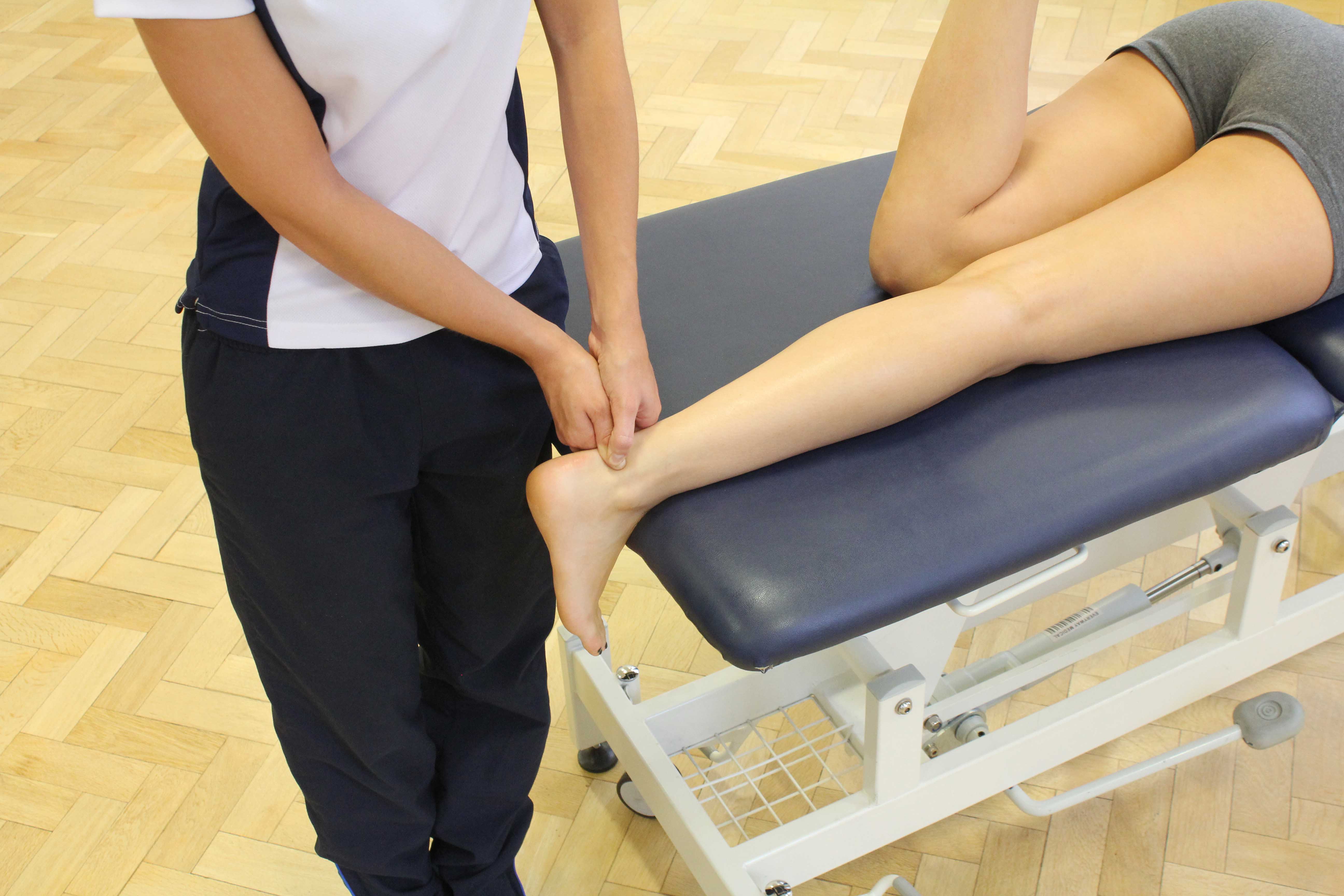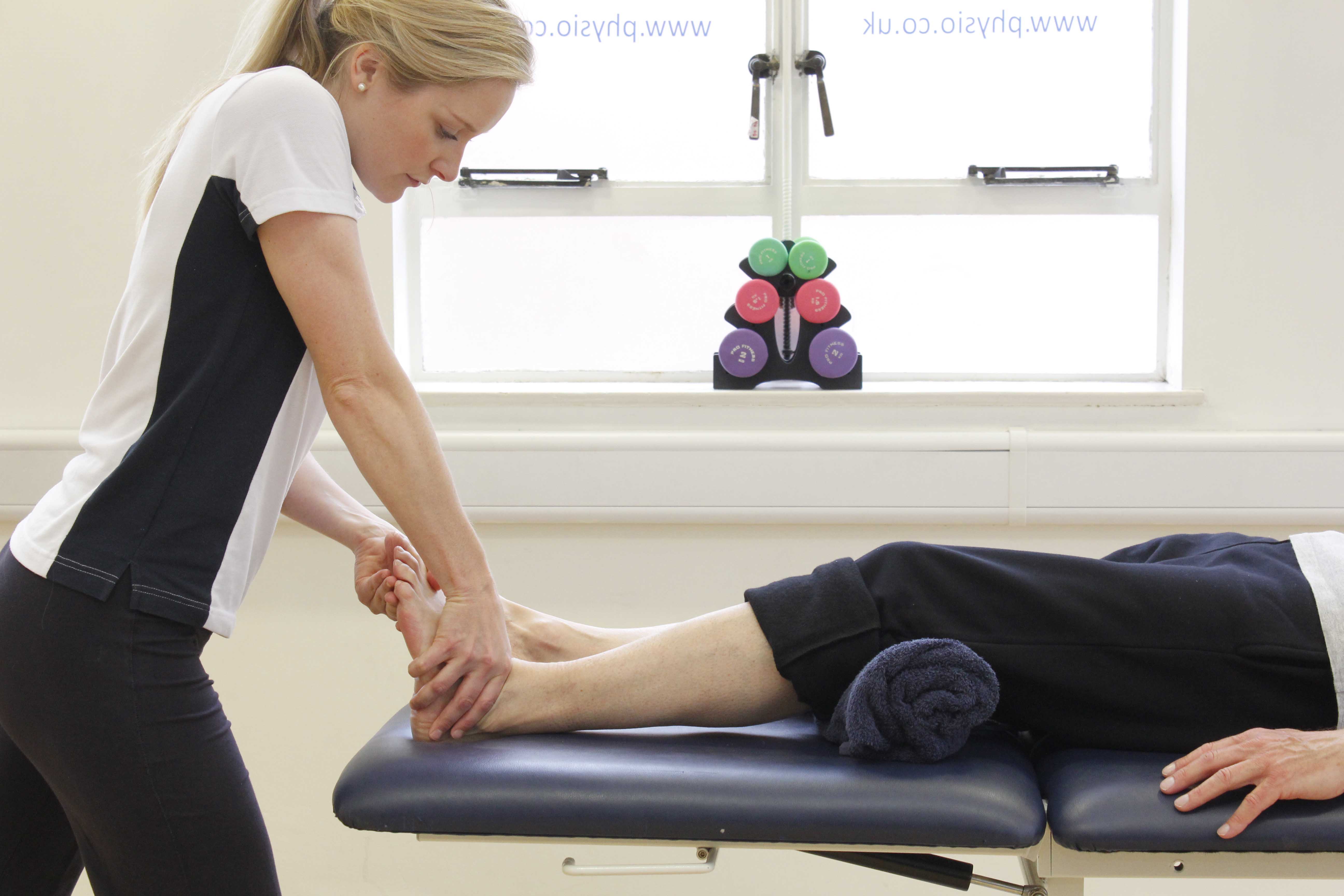What is achilles tendonitis?
The achilles tendon is the large tendon which joins the muscles of the calf to the heel bone. Achilles tendonitis (or achilles tendinopathy) is inflammation within this tendon. Physiotherapy is an important treatment for Achilles tendonitis.
 Above: Friction massage applied to the achilles tendon by specialist therapist
Above: Friction massage applied to the achilles tendon by specialist therapistHow does achilles tendonitis happen?
Achilles tendonitis is a relatively common condition caused by overuse of the achilles tendon. Therefore, it is often experienced by those who participate in sports involving lots of running and jumping.
Repetitive use of the calf muscles and, therefore, the achilles tendon can cause microscopic tears within the tendon. The body then commences an inflammatory response to repair these tears. The initial inflammatory response is part of the normal healing process, however, because the stresses are repeated and the inflammation is prolonged it causes local tissue damage. Many factors can contribute to an individual developing achilles tendonitis, including recent changes in training (frequency, duration, intensity, training surfaces), reduced rest times, biomechanical abnormalities, poor footwear, and decreased muscle flexibility and joint range of movement.
What are the symptoms of achilles tendonitis?
Achilles tendonitis causes pain at the back of the ankle, just above the heel bone. The pain normally develops gradually. At first, the achilles tendon may only be painful following exercise. There may also be a stiffness or tightness in the ankle. These initial signs of achilles tendonitis are often ignored as they disappear with walking about or applying heat over the back of the ankle. However, if you continue to aggravate your tendonitis, your injury can worsen and the pain within the tendon can become more intense and more frequent, until it is present all of the time. Other symptoms can include:
What should I do if I have achilles tendonitis?
Achilles tendonitis generally does not settle without physiotherapy. If you suspect that you have an achilles tendonitis, you should arrange a physiotherapy assessment as soon as possible. In the meantime, you can ice your achilles tendon using a bag of frozen peas or crushed ice wrapped in a damp cloth for 15–20 minutes every couple of hours.
 Above: Passive stretch of the achilles tendon performed by specialist therapist
Above: Passive stretch of the achilles tendon performed by specialist therapistWhat shouldn’t I do if I have achilles tendonitis?
If you have or suspect you have achilles tendonitis, you should not ignore your problem. Your pain may initially get better as you exercise; however, it is likely that the exercise will interfere with the healing process, cause further damage and delay your recovery.
Physiotherapy treatment for achilles tendonitis.
Physiotherapy is essential in the treatment of achilles tendonitis. Initially, your physiotherapist can diagnose your injury and determine a treatment programme. Treatment may involve: To arrange a physiotherapy appointment call Physio.co.uk on 0330 088 7800 or book online.

 0330 088 7800
0330 088 7800





































